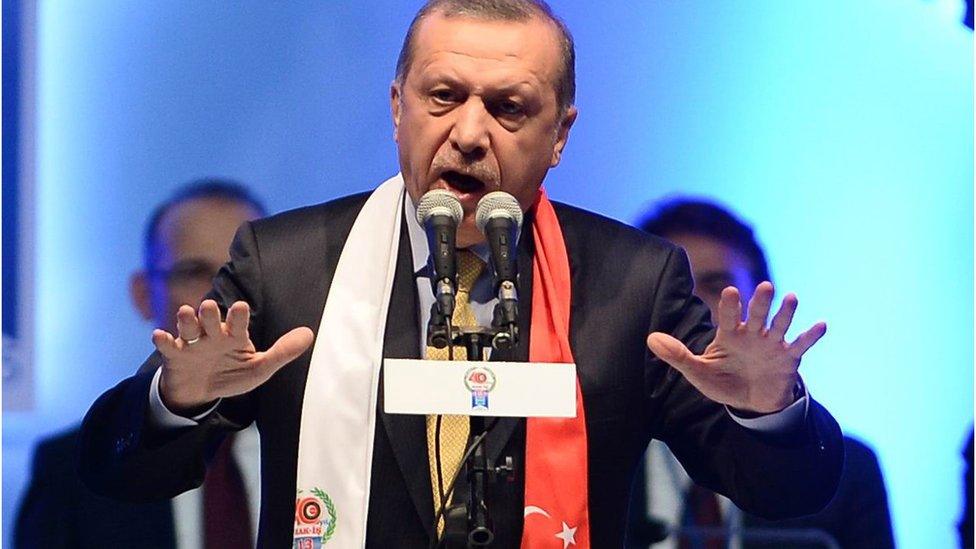Turkey election: Diyarbakir feels pressure
- Published
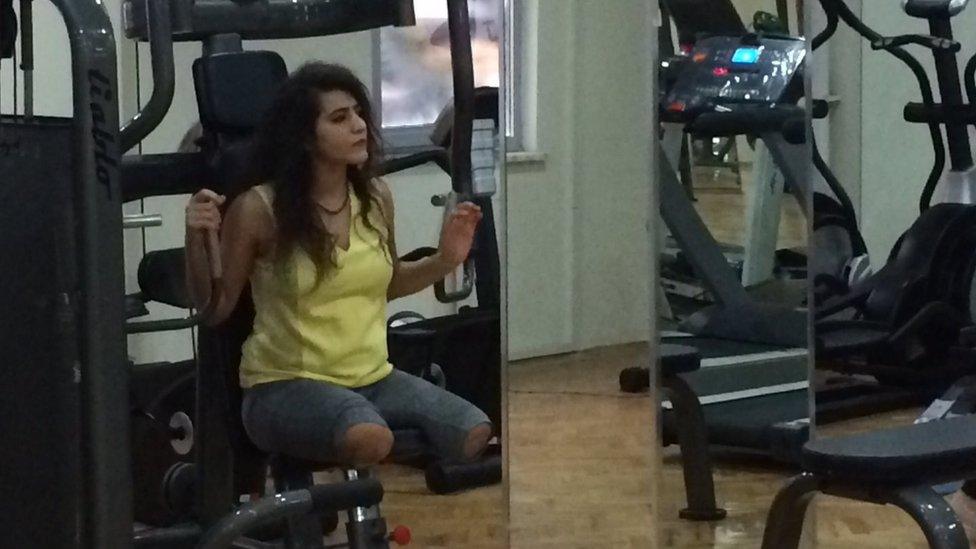
"I felt pain in my legs - but they weren't there"
Lisa Calan pauses her workout, hoisting herself into her wheelchair.
Before the bomb blast in which she lost both legs, running and pilates were her exercises of choice. But since then, she has turned to the gym - and she is more committed than ever.
"I come three times a week," says the 28-year-old, smiling and wiping away a bead of sweat. "I need to build up my fitness for the prosthesis in a few weeks."
It was 5 June, two days before the last election here, when Lisa was at the final rally in Diyarbakir of the pro-Kurdish HDP party.
Tens of thousands had packed into the city that Kurds across the Middle East call their capital. Suddenly an explosion tore through the crowd. It was a bomb filled with ball bearings.
"I opened my eyes and asked: 'Has a war begun?'" Lisa remembers.
"Everyone was crying, and one woman was singing a song in Kurdish, saying: 'They massacred us again.'
"I looked at bodies around me… and then I felt pain in my legs - but they weren't there."
Worried nation
It was the first of three attacks since then blamed on the Islamic State (IS) group: the next in Suruc in July killed more than 30 people and then the suicide bombs in Ankara this month left at least 102 dead.
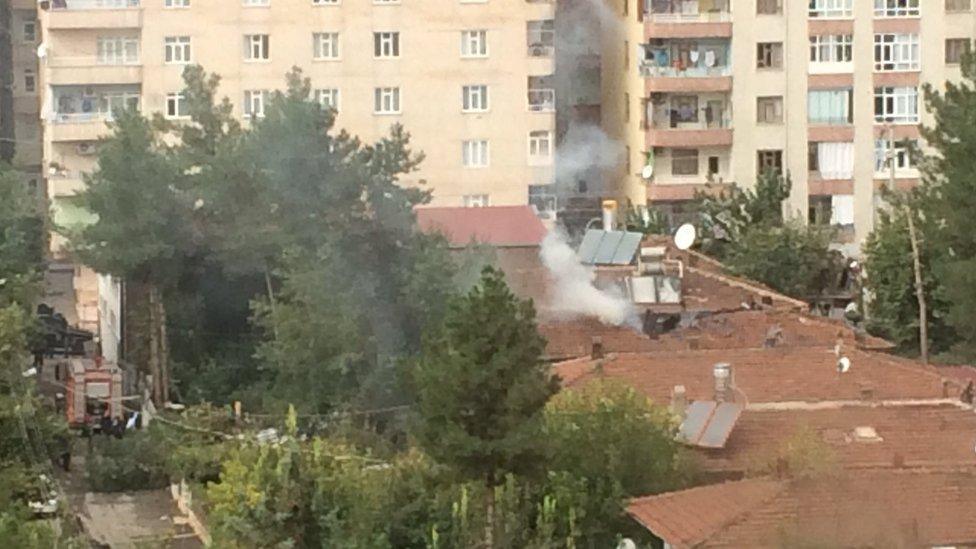
This raid on an IS cell in Diyarbakir cost two policemen their lives
Turkey feels vulnerable. This week two Turkish policemen were killed when they raided a suspected IS cell in the centre of Diyarbakir.
The threat from IS comes on top of prolonged violence with the Kurdish militant group, the PKK, after a two-year ceasefire broke down in July.
A deadly cycle of tit-for-tat attacks has followed, with more than 140 Turkish security personnel killed and civilians caught up in curfews across the south-east.
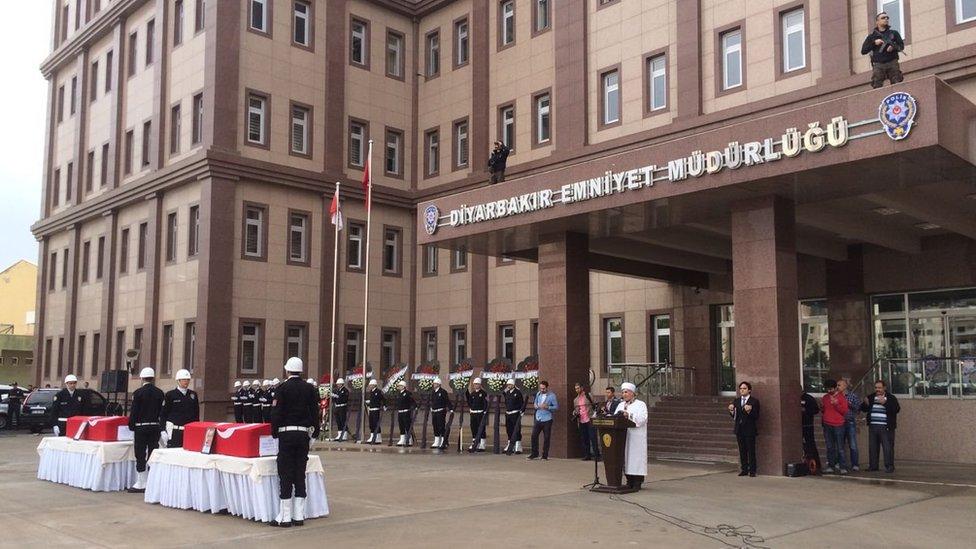
More than 140 Turkish security personnel have been killed in the violence
The violence on two fronts has pushed the issue of security to the heart of Sunday's election, a rerun of the inconclusive poll in June.
A worried nation is asking whom it can trust to make Turkey feel safe again.
Mark Lowen: "The issue of security is at the heart of Sunday's election"
Diyarbakir's old town bears the scars of the PKK clashes; buildings in the Sur neighbourhood are torn apart by shrapnel and riddled with bullet holes.
"One of the bombs destroyed our windows", says Guzide Diker, who works at the Armenian church in Sur.
"A girl was killed by police fire when she was on her way to buy bread. Every day we worry when they will start shooting again. This is worse than it was in the 1990s."
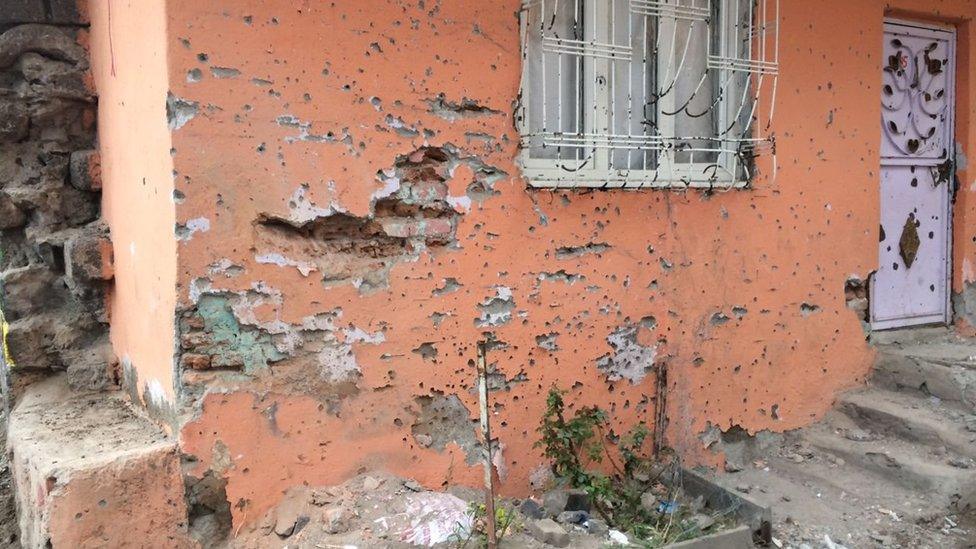
Many areas in the Sur neighbourhood show signs of the conflict
That was the height of the 30-year-long conflict between the Turkish state and the PKK, in which 40,000 were killed.
The AK Party government of Recep Tayyip Erdogan pursued a peace process and Kurdish rights improved.
But since June's election, the violence has resumed.
Recrimination
The government blames the PKK for an orchestrated campaign. Critics say President Erdogan is trying to win back nationalist support and crush the pro-Kurdish party before Sunday's election.
"Our people know that we have not caused the security problems", says Muhammed Akar, the AK Party's chairman in Diyarbakir.
"They see it's because the AKP did not get a majority [in June]. Turkish people want a strong government and will choose the AKP for stability.
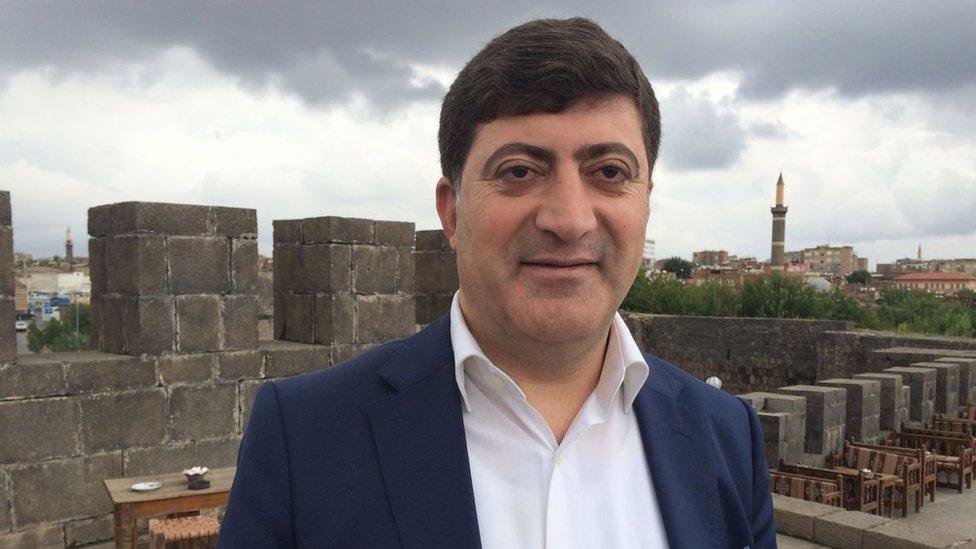
"International powers are behind the attacks to destabilise Turkey," said the AKP's Muhammed Akar
"International powers are behind the attacks to destabilise Turkey," he insists.
But recriminations towards the government over the rise of IS here are building.
Protests after the Ankara attacks focused on security failings at the top level.
Many here feel the reality is far darker, alleging collusion against the Kurds.
The government dismissed two Ankara police chiefs, but President Erdogan never addressed the nation to offer condolences.
Radicalisation
We travelled to the town of Adiyaman, three hours from Diyarbakir, that has become the centre of IS activity in Turkey.
Of a government list of 21 suspected suicide bombers, 18 were from Adiyaman.
It is an unremarkable, conservative city of about 300,000 people.
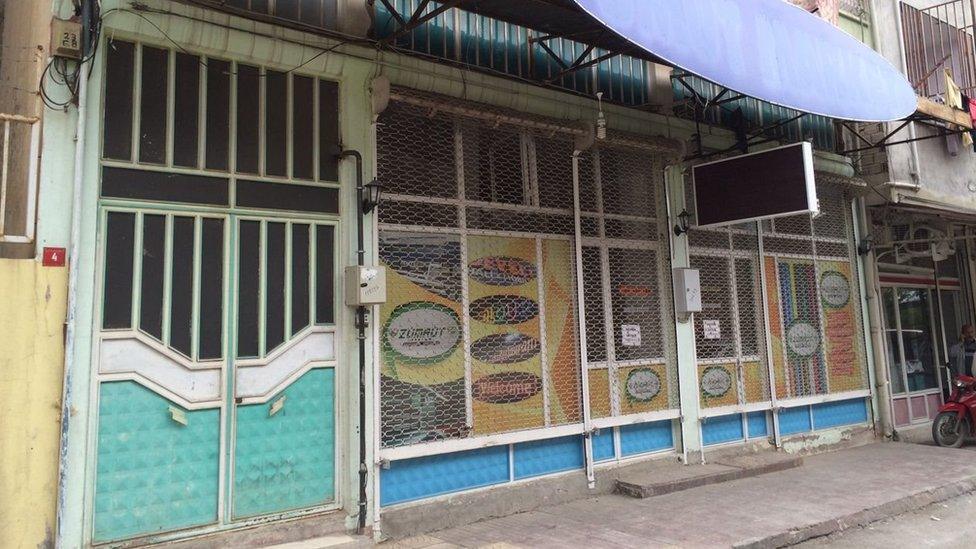
Authorities took months to close down this tea house, despite local knowledge that it was a centre of radicalisation
The radicalisation took place in the Islam Tea House just off the main drag. It is highly visible and there were warnings about what was going on inside - but it took months for the authorities to shut it down.
Nearby is Ercan Gonder's bakery, where his small team prepares "pide", the local speciality.
They roll the dough flat and cover it with a spicy tomato paste before sliding it into an open oven.
Ercan's cousin, Orhan, was a regular at the tea house - and is now detained, charged with planting the bomb at the Diyarbakir rally.
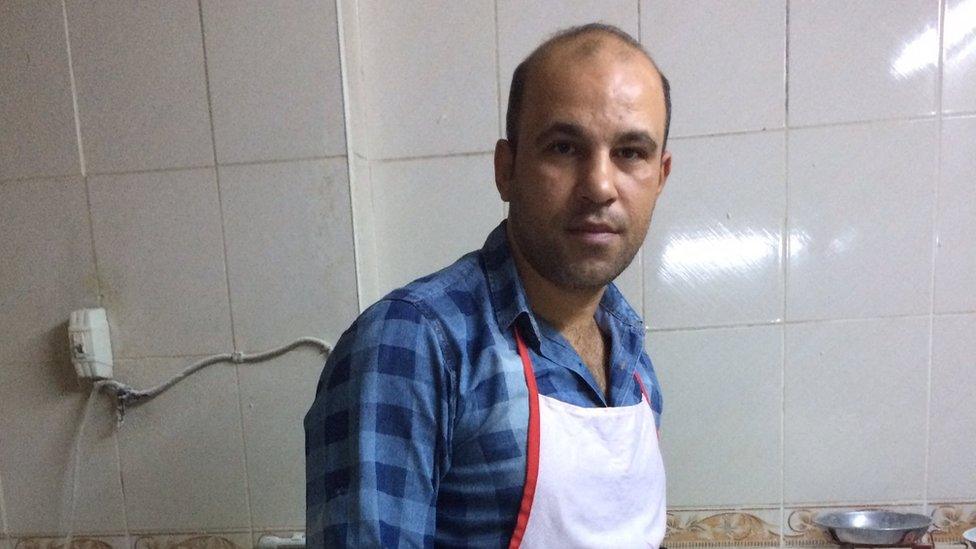
Ercan Gonder, whose cousin is charged with planting the bomb at the Diyarbakir rally
"We were devastated - our ideology is completely opposite to these people [Islamic State]", says Ercan. "We warned the police about him - and again when we heard he was on his way to Syria - but they didn't do anything."
He pauses, collecting his thoughts.
"The real responsibility lies with the rulers of Turkey," he continues.
"If Orhan had been involved with the PKK, our whole family would have been arrested.
"But since it was Islamic State, the police didn't take it seriously. Turkey's policy in Syria is causing our people to disappear there. This is the blowback."
Critical moment
From the start of the war in Syria, Turkey opposed the government of President Bashar al-Assad - and in so doing was accused of getting too close to radical groups there, its southern border long seen as easy passage for jihadists.
Ankara has always denied the allegations and is part of the anti-IS coalition.
But the Islamist-rooted government here has never escaped criticism that it has turned a blind eye - or worse.
In the Diyarbakir gym, Lisa Calan is beginning the next phase of her workout.
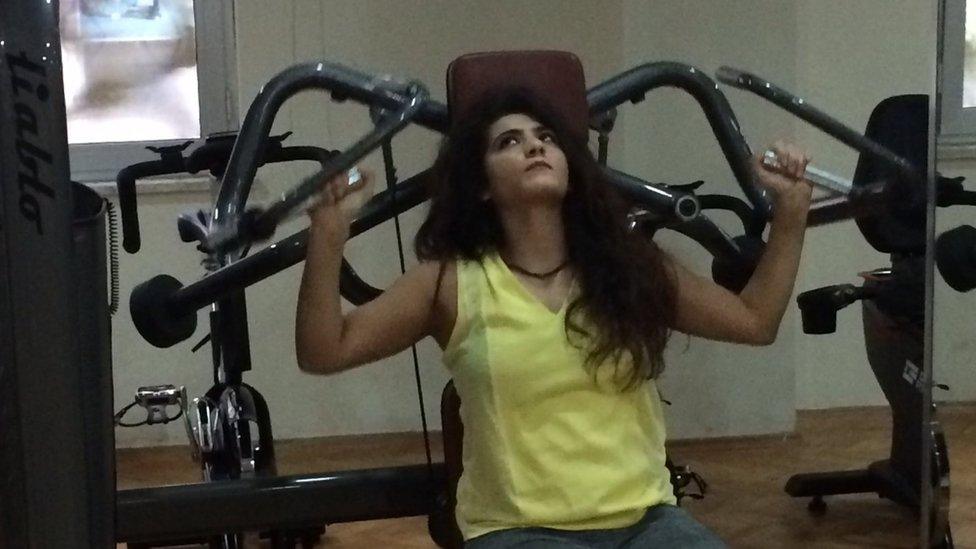
"It's not a matter of being Turkish or Kurdish... none of us feel safe any more"
"Kurds don't feel safe at all", she tells me. "But it's not a matter of being Turkish or Kurdish.
"People who want peace, a better life, who oppose the government, none of us feel safe any more. In the 80s and 90s people were taken from their homes and got killed elsewhere. Now it's done openly."
Sunday's election is a critical moment for the stability of Turkey, the West's vital ally in a volatile Middle East and the main transit country for refugees to Europe: the key to solving the migrant crisis.
For Mr Erdogan, it has become a struggle for the survival of the party he founded and of his political legacy.
For the country, it could herald a change of direction and determine whether the insecurity deepens.
Before leaving the gym, I ask Lisa where she will get her prosthesis done.
"In Germany", she replies. "I could have it here but this was the country that robbed me of my legs. Why would I trust it to replace them?"
- Published11 October 2015
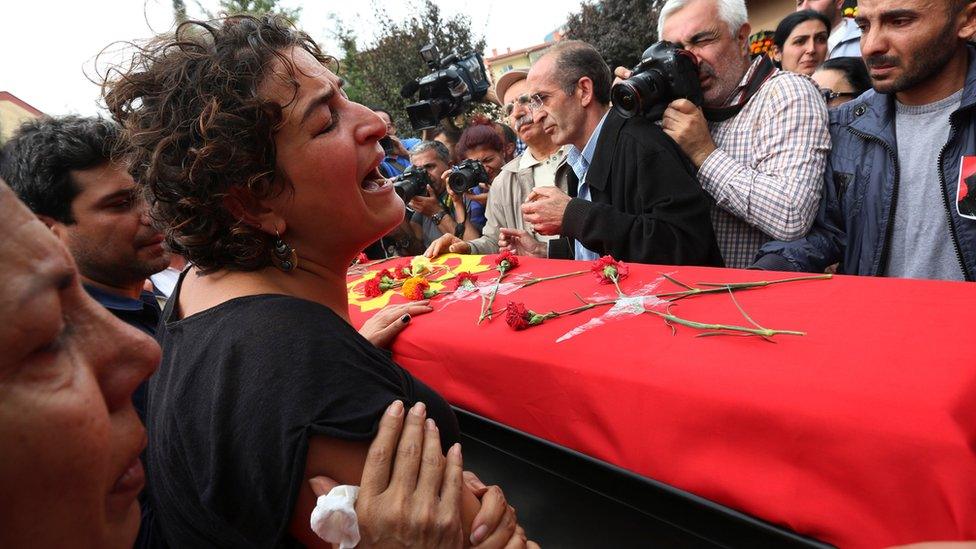
- Published6 June 2015
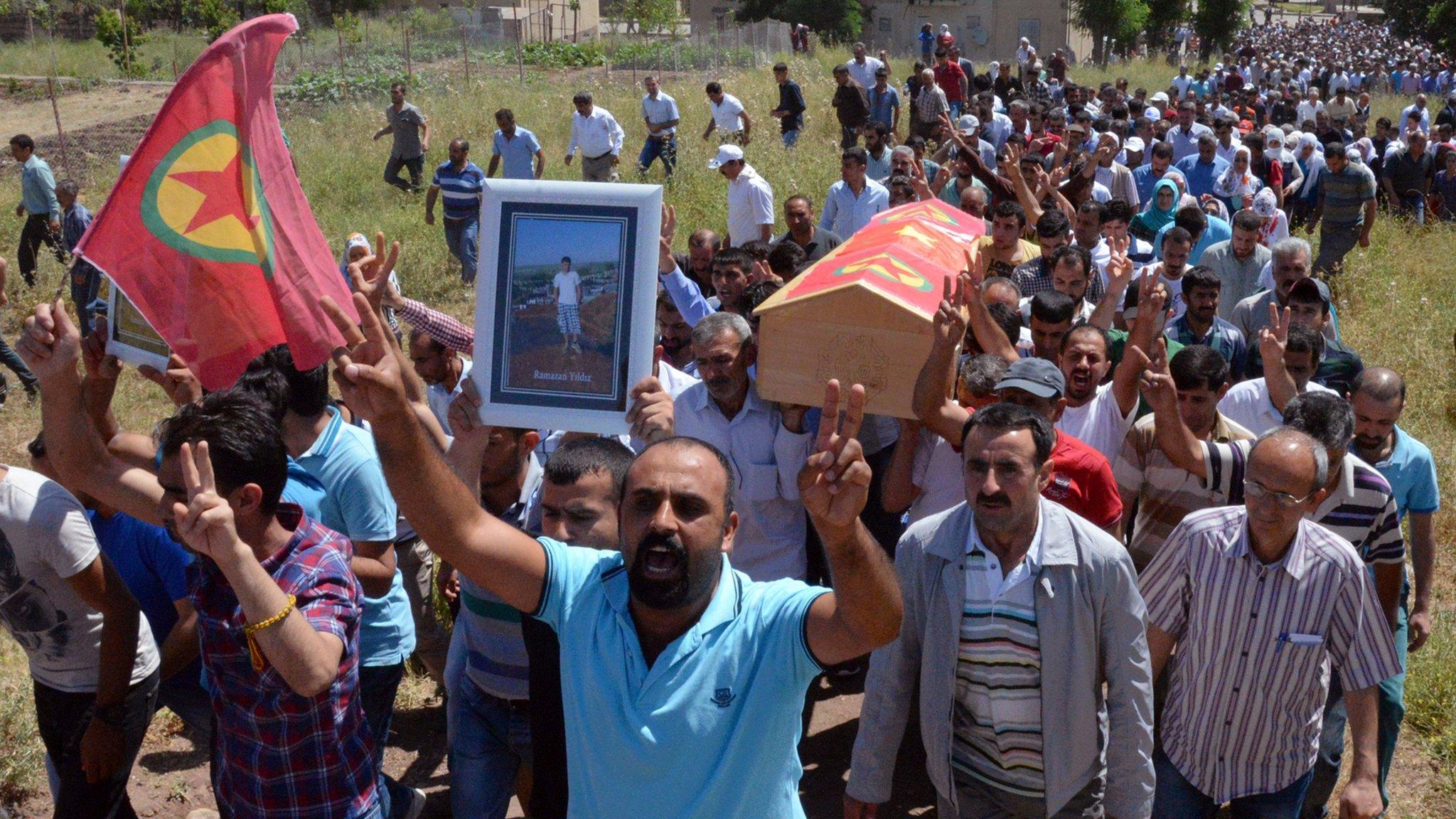
- Published20 July 2015
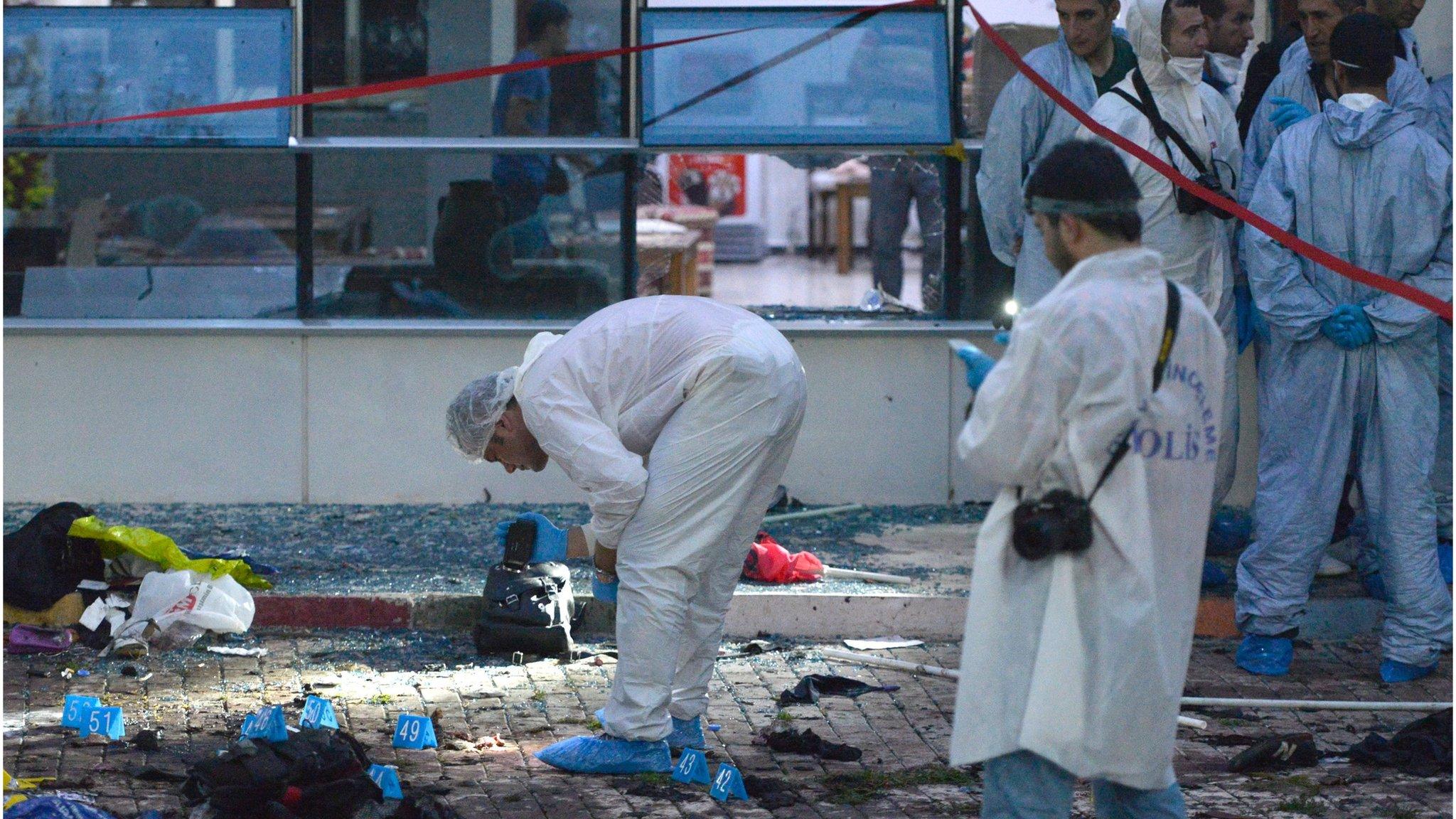
- Published5 January 2017
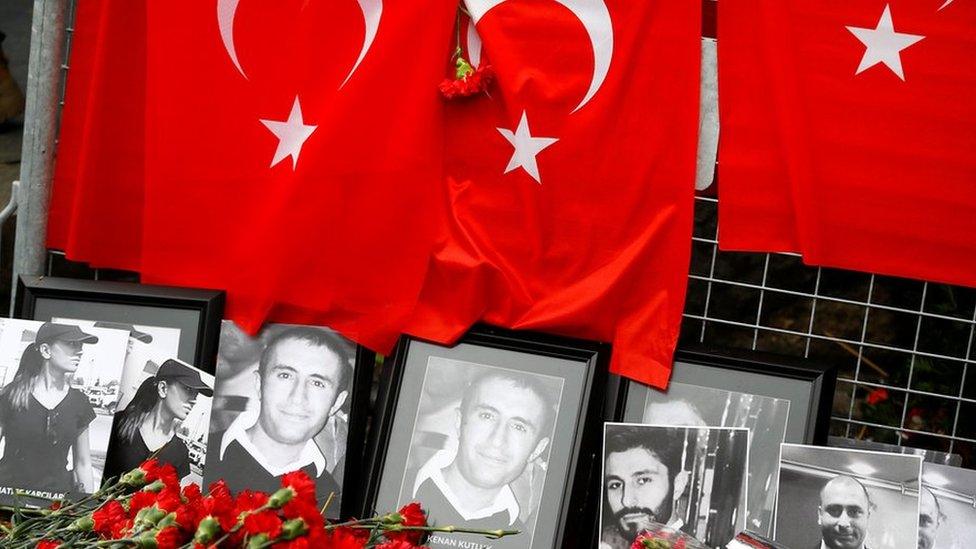
- Published27 October 2015
